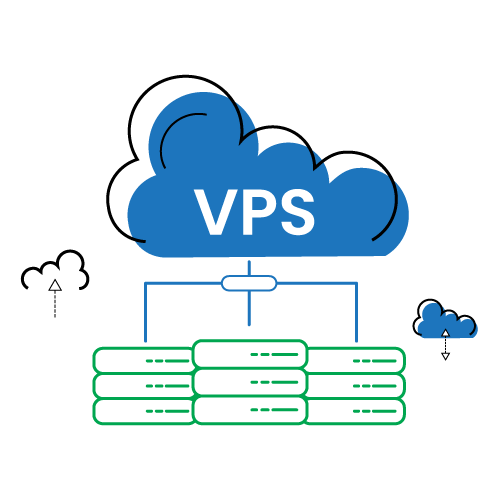Shared hosting offers an accessible and cost-effective solution for many websites, but it comes with unique challenges and opportunities for optimization. Understanding the basics of shared hosting is crucial, as it differs significantly from other hosting options in terms of resource allocation and performance. Choosing the right plan and managing resources effectively are essential for maintaining website efficiency and avoiding performance bottlenecks. This article will guide you through maximizing efficiency with shared hosting by providing practical tips on optimizing website performance, securing your site, and effectively communicating with your hosting provider. By honing these essential soft skills, you can ensure a smooth and reliable hosting experience for your website.
Explore this topic with gamesweed.com in great detail.
1. Understanding Shared Hosting Basics: Overview of what shared hosting is and how it differs from other hosting options.
Shared hosting is a popular and economical choice for website owners, especially those with smaller or medium-sized sites. In this setup, multiple websites share the same server resources, including CPU, memory, and disk space. This means that the cost of hosting is distributed among several users, making it more affordable than dedicated hosting solutions.
Unlike dedicated hosting, where a single server is allocated to one user, shared hosting limits resources to ensure all users on the server can operate efficiently. This can lead to potential performance issues if one site uses an excessive amount of resources. Additionally, shared hosting differs from virtual private servers (VPS) in that VPS provides a more isolated environment with dedicated resources, offering greater control and customization. Understanding these distinctions helps in choosing the right hosting solution based on your website’s needs, balancing cost, performance, and control.
2. Choosing the Right Shared Hosting Plan: Key factors to consider when selecting a plan that fits your needs.
Selecting the right shared hosting plan involves evaluating several key factors to ensure it meets your website’s needs and goals. First, consider the allocation of resources such as disk space, bandwidth, and memory. Assess your website’s expected traffic and data requirements to choose a plan that can handle your needs without compromising performance.
Next, examine the hosting provider’s uptime guarantee and customer support. A reliable provider should offer at least 99.9% uptime and responsive customer service to address any issues promptly. Look for features like one-click installations for popular applications, email accounts, and SSL certificates, which can add value and convenience.
Additionally, check for scalability options. A good hosting plan should allow you to upgrade easily as your website grows, avoiding the need for a complete migration to a new server. Review the pricing structure and renewal rates to avoid unexpected costs, and ensure there are no hidden fees. Finally, read customer reviews to gauge the provider’s reputation and service quality. By carefully considering these factors, you can select a shared hosting plan that aligns with your website’s requirements and provides a stable, efficient hosting environment.
3. Managing Resources Effectively: Tips on how to efficiently use allocated resources to avoid performance issues.
Effectively managing resources on a shared hosting plan is crucial for maintaining optimal website performance. Start by monitoring your website’s resource usage regularly. Many hosting providers offer dashboards that display CPU, memory, and bandwidth consumption, helping you track and manage your allocation.
Optimize your website by using efficient coding practices and minimizing the use of heavy plugins or scripts. Compress images and use caching mechanisms to reduce the load on your server and improve load times. Regularly update your software, plugins, and themes to ensure they are running efficiently and securely.
Consider implementing a content delivery network (CDN) to distribute your website’s content across multiple servers, reducing the strain on your shared hosting environment and enhancing load times for users globally. Additionally, limit the number of concurrent connections to your site to avoid exceeding resource limits.
By proactively managing these aspects, you can prevent performance issues and ensure a smooth, reliable experience for your website visitors while staying within the resource constraints of your shared hosting plan.
4. Optimizing Website Performance: Techniques to enhance site speed and reliability on a shared hosting environment.
Optimizing website performance on a shared hosting environment involves several key techniques. First, leverage caching to reduce server load and improve load times. Implement browser caching to store static resources locally on visitors’ devices, and use server-side caching plugins to expedite page delivery.
Compress and optimize images to decrease file sizes without sacrificing quality, which helps in faster loading. Use tools like image compression plugins and formats like WebP for efficient image handling. Minimize the use of heavy scripts and unnecessary plugins that can slow down your site.
Utilize a content delivery network (CDN) to distribute content across multiple servers globally, ensuring faster access for users regardless of their location. Optimize your database by regularly cleaning up old or unnecessary data, which helps in faster queries and improved performance.
Finally, ensure your website’s code is clean and efficient. Minify CSS, JavaScript, and HTML files to reduce their size and enhance loading speeds. These techniques collectively contribute to a faster, more reliable website experience.

5. Handling Security Concerns: Best practices for ensuring your website remains secure despite shared server vulnerabilities.
Ensuring your website remains secure on a shared hosting environment requires proactive measures to address potential vulnerabilities. First, implement strong, unique passwords for all user accounts associated with your website and hosting. Use a combination of letters, numbers, and special characters, and change passwords regularly to enhance security.
Install an SSL certificate to encrypt data transmitted between your website and its visitors, which protects sensitive information and builds trust. Ensure that the SSL certificate is up-to-date and properly configured.
Regularly update all software, including your content management system (CMS), plugins, and themes. Updates often include security patches that protect against known vulnerabilities. Disable or remove any unused plugins or themes, as they can become potential security risks.
Utilize security plugins or services that offer features like malware scanning, firewalls, and login protection to detect and prevent malicious activities. Regularly back up your website data to an off-site location to safeguard against data loss or corruption.
Monitor your website for unusual activities or unauthorized access attempts. Many hosting providers offer monitoring tools that alert you to potential security breaches. By staying vigilant and following these best practices, you can significantly reduce the risk of security issues and maintain a secure website on a shared hosting platform.

6. Monitoring and Troubleshooting: Essential skills for identifying and resolving common issues in a shared hosting setup.
Monitoring and troubleshooting are crucial for maintaining a smooth shared hosting environment. Start by regularly checking your website’s performance metrics through your hosting provider’s control panel or third-party tools. Look for unusual spikes in resource usage or slow load times, which may indicate underlying issues.
Establish a routine for reviewing error logs and server statistics to identify recurring problems or anomalies. These logs can provide valuable insights into server errors, failed processes, or potential conflicts. Understanding common error messages, such as 500 Internal Server Errors or 403 Forbidden Errors, can help you diagnose issues quickly.
Use diagnostic tools to perform checks on your website’s functionality and performance. Tools that test website speed, uptime, and broken links can highlight areas needing attention. If you encounter technical issues, consult your hosting provider’s support team for assistance, as they can offer specialized help and guidance.
Regularly updating your website and plugins can prevent many common issues. By staying proactive with monitoring and troubleshooting, you can address problems early and ensure a reliable and efficient hosting experience.

7. Communication with Hosting Providers: Effective ways to interact with your hosting provider for support and problem resolution.
Effective communication with your hosting provider is key to resolving issues and ensuring smooth operation of your website. Start by clearly documenting the problem you’re experiencing, including any error messages, screenshots, and the steps leading to the issue. This detailed information will help the support team understand and address the problem more efficiently.
Use the hosting provider’s preferred communication channels, such as support tickets, live chat, or phone calls, to report issues. Be concise and precise in your descriptions to avoid misunderstandings and delays.
Follow up on unresolved issues and request status updates if necessary. Maintaining regular communication helps ensure that your concerns are being addressed promptly.
Additionally, familiarize yourself with the provider’s support resources, including knowledge bases, FAQs, and community forums. These resources can offer immediate solutions to common problems and enhance your overall understanding of the hosting environment. Effective interaction with your hosting provider can significantly improve problem resolution and support experience.

Maximizing efficiency with shared hosting requires a strategic approach to managing resources, optimizing performance, and addressing security concerns. By selecting the right plan, employing effective optimization techniques, and maintaining open communication with your hosting provider, you can ensure a smooth and reliable website experience. Implementing these best practices will help you navigate the challenges of shared hosting and achieve long-term success.
gamesweed.com